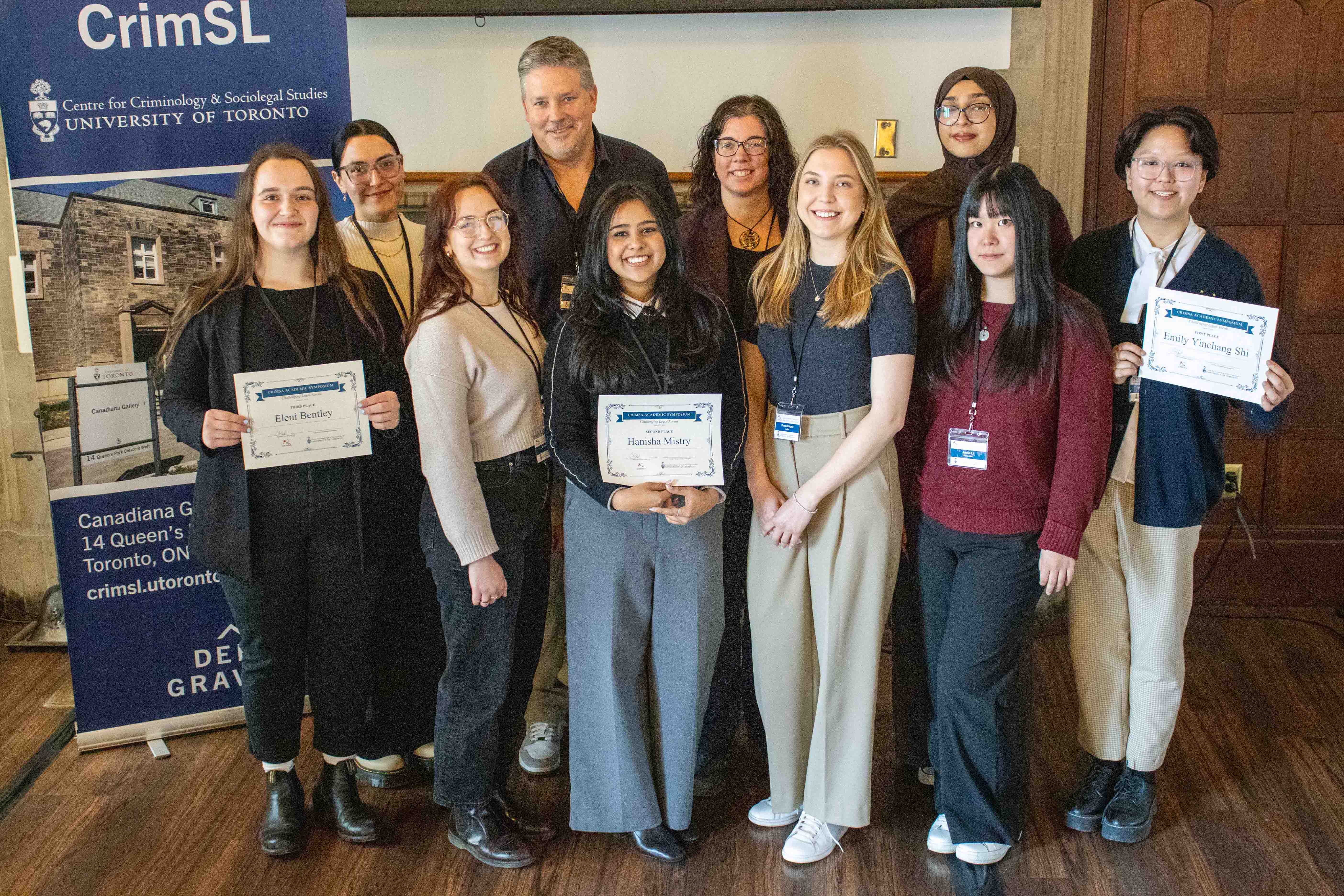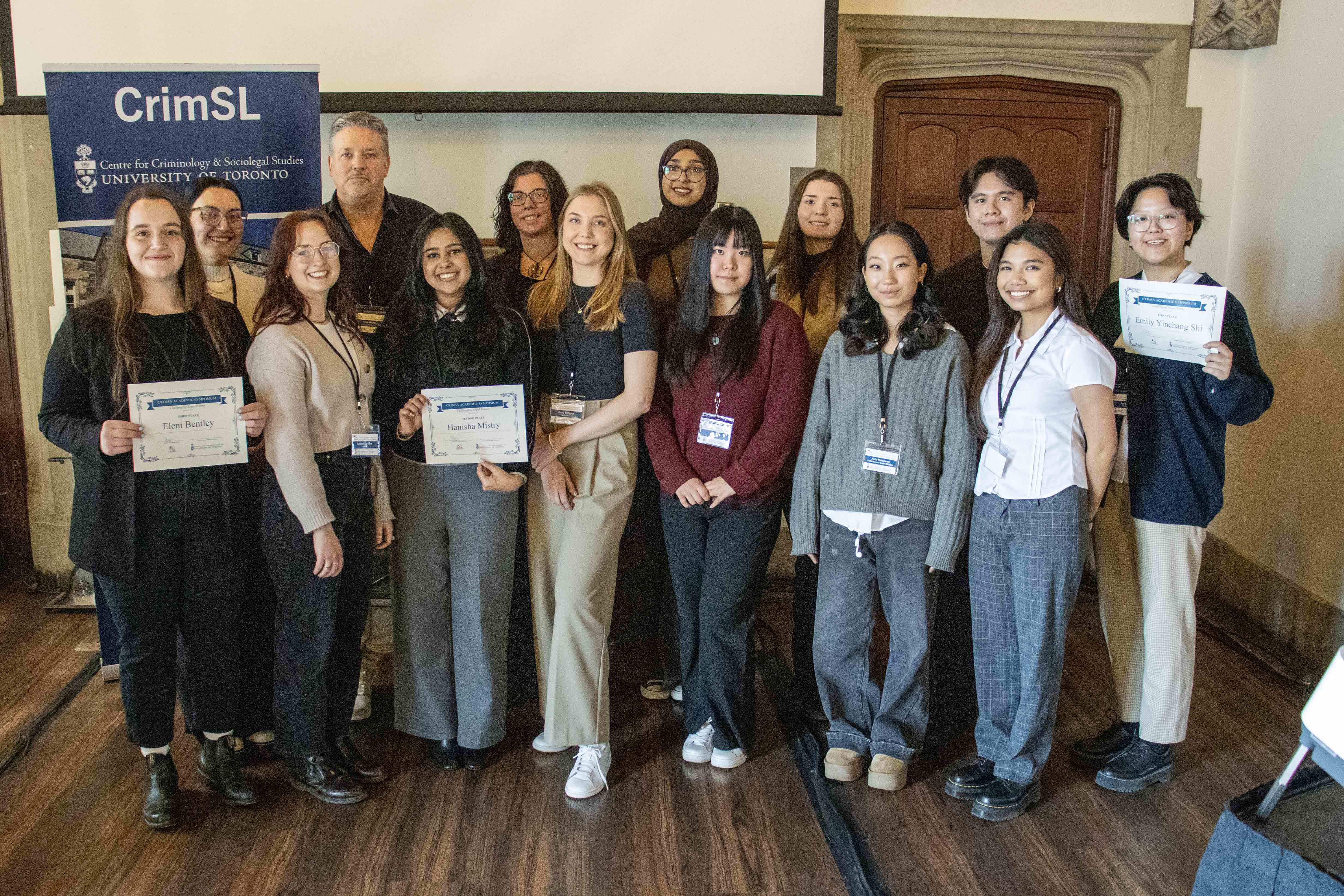The Criminology and Sociolegal Studies Students' Association (CRIMSA) presented its second academic symposium on the theme "Challenging Legal Norms" on Thursday, March 27, 2025, from 1:00 p.m. to 4:00 p.m. at Hart House Music Room.
The event showcased research by six CrimSL undergraduates whose papers critically explored and questioned established legal principles, practices, and systems. Selected by a panel of six judges from an impressive pool of submissions, the presenters demonstrated exceptional dedication and scholarly excellence in crafting their research essays, and their work offered valuable insights into various aspects of criminology and sociolegal studies reflecting a diverse range of perspectives and approaches.
The Centre for Criminology and Sociolegal Studies co-sponsored the event.
About the selection process
CRIMSA circulated a Call for Papers to all CrimSL undergraduate students in late January with a due date of February 20, 2025. The criteria for submissions were that:
- papers must have received a minimum grade of 80%
- students must be enrolled in either Criminology & Sociolegal Studies major or specialist programs
- submitted papers must be a research project
- papers were related to the theme of "Challenging Legal Norms"
A selection committee chose the top ten submissions, and the authors were invited to present their papers at the symposium. Five students accepted the opportunity.
One additional student, Dean Robert Tessaro, was selected to present under special circumstances but was not eligible for a prize.
The judging panel awarded prizes to the top three papers.
The program
The event was hosted by CRIMSA's 2024-2025 President, Charley McNeil, with assistance from CRIMSA volunteer Kalaya Hudziec-Leiva. ![]() See CRIMSA 2025 Symposium Program..
See CRIMSA 2025 Symposium Program..
Professor Kamari Maxine Clarke, director of CrimSL, gave welcoming remarks in which she commended CRIMSA on the symposium theme of Challenging Legal Norms as a critically important process:
It's commendable that our student association has decided to spotlight innovative perspectives and transformative ideas that challenge established legal principles. From reforming outdated policies to addressing issues of equity and justice, our discussions today will delve into the dynamic evolution of law and its profound implications for daily life.
When we understand that the law is not an untouchable monolith but a living system open to reform, we see that laws must be continuously re-examined. Challenging legal norms is not an act of defiance but an essential process for ensuring justice, equity, and social progress. Today, our students are doing just that with this conference and the papers that we will hear. By fostering critical engagement with legal principles, practices, and systems, we move toward a more just and inclusive legal landscape—one that serves all individuals and communities with ethics, fairness and integrity as our guide.
This is how we can contribute to the advancement of the fields of criminology and sociolegal studies and to a more just world.
—Kamari Maxine Clarke, Professor and Director, Criminology and Sociolegal Studies
Professor Clarke thanked symposium presenters, volunteer judges, CRIMSA, and CrimSL faculty and staff for their roles in presenting a stimulating and enriching symposium.
CrimSL Undergraduate Coordinator Professor Scot Wortley awarded certificates to the top three presenters and gave closing remarks before group photos were taken.
Meet the presenters
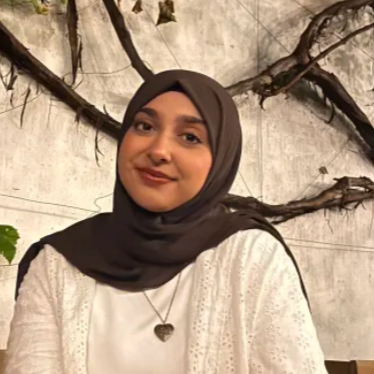
Ariba Amer is a passionate third-year Criminology and Political Science student with a particular interest in the "why" of many taken-for-granted, established criminal justice principles. When she is not doing schoolwork, she enjoys exploring Toronto with her good friends.
Paper: "A Ridiculous Testimony: An Ethnomethodological Analysis of A Canadian Court Case" (click on title to view abstract)

Eleni Bentley is a fourth-year undergraduate student majoring in Criminology and Sociolegal Studies with a double minor in Political Science and Religion. She has competed with the Varsity Blues Wrestling Team throughout her undergraduate career and coaches her local high school wrestling team. She has just enrolled in the Canadian Armed Forces and plans to attend law school in the coming years.
 Paper: "Sexism in Police Culture, Underreporting, and Attrition of Sexual Assault Cases." (click on title to view abstract)
Paper: "Sexism in Police Culture, Underreporting, and Attrition of Sexual Assault Cases." (click on title to view abstract)
THIRD PLACE WINNER

Annie Li is an Honours Bachelors of Arts student at the University of Toronto, majoring in Criminology & Sociolegal Studies and Ethics, Society, & Law. Annie's work focuses on how policing institutions interact with laws and societal narratives to shape the treatment of vulnerable individuals. She is the recipient of the University of Toronto Excellence Award (UTEA). Currently, Annie is collaborating on the research project "Charting the Reasonable Officer" with Dr. Patrick Watson, an Assistant Professor at the University of Toronto, and his research team. Annie has presented this research, titled "Narratives of Victim Precipitation in Police Accountability Reports: The Case of the SIU's Response to Suicide-by-Cop Declarations," at the ASSU Undergraduate Research Conference (URC), the Trinity College Undergraduate Research Conference (TCURC), and she will be a panelist at the Canadian Sociological Association (CSA) conference this June.
Paper: "Mental Health and Marginalisation: Police Discretion and Bias Under Ontario’s Mental Health Act." (click on title to view abstract)

I am Hanisha Mistry, a fourth-year student double-majoring in Criminology & Sociological Studies and Socio-Cultural & Linguistic Anthropology. I am passionate about research and the impact that the study of criminology has on our society!
 Paper: "Legitimizing Discrimination: The Anti-Terrorism Act's Impact on Racialized Communities." (click on title to view abstract)
Paper: "Legitimizing Discrimination: The Anti-Terrorism Act's Impact on Racialized Communities." (click on title to view abstract)
SECOND PRIZE WINNER
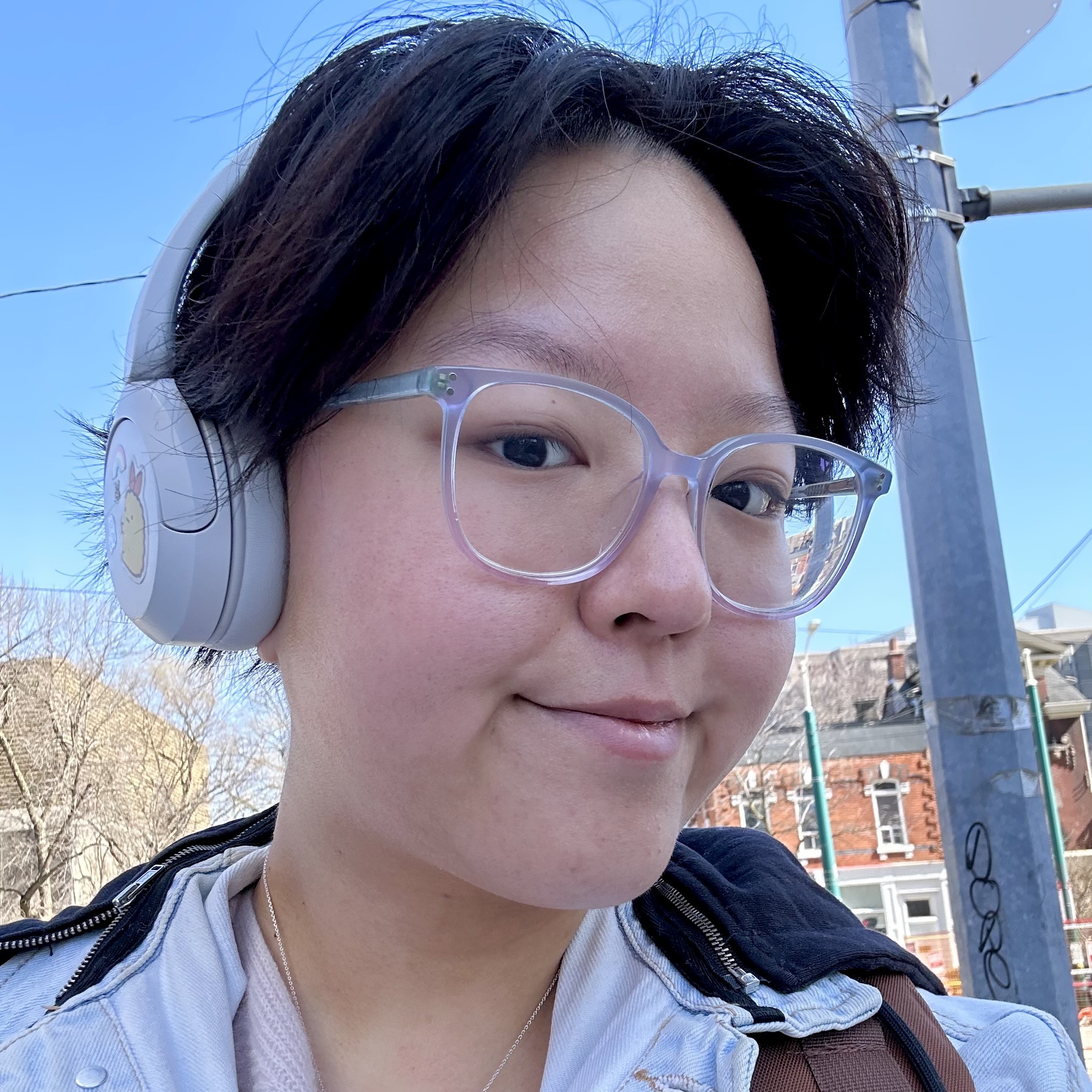
Emily Yinchang Shi is a fourth-year Criminology and Political Science double major. She is incredibly grateful to her various professors—Professor Weaver, Professor Lovel, Professor Mount and Dr. D. Clark—for introducing her to the frameworks, contexts, precedents, and stories which have enriched her university years. A cross-section of interests inspired her paper: gendered realities, fundamental rights, and the questioning of universal narratives.
Emily is a former President of the Hart House Debating Club and ironically, finds presenting papers more intimidating than participating public debates. She hopes other students will think of joining!
 Paper: "Beyond Social Change: Achieving same-sex rights through Judicial Activism in the Caribbean." (click on title to view abstract)
Paper: "Beyond Social Change: Achieving same-sex rights through Judicial Activism in the Caribbean." (click on title to view abstract)
FIRST PLACE WINNER

Dean Tessaro is a third-year CrimSL major and political science specialist with a passion for law and governance. He spent the past year as the Vice President of the Criminology and Sociolegal Studies Students' Association (CRIMSA) and will be serving as an Executive on the Arts & Science Students' Union (ASSU) in the upcoming year. Dean is a member of the "Charting the Reasonable Officer" project team, directed by CrimSL Assistant Professor Dr. Patrick Watson; his other research interests include legal development, critical international relations, and political ideology.
Paper: "A Car Without a Mind: Police Reasonableness in Vehicular Shootings." (click on title to view abstract)
Prize winners
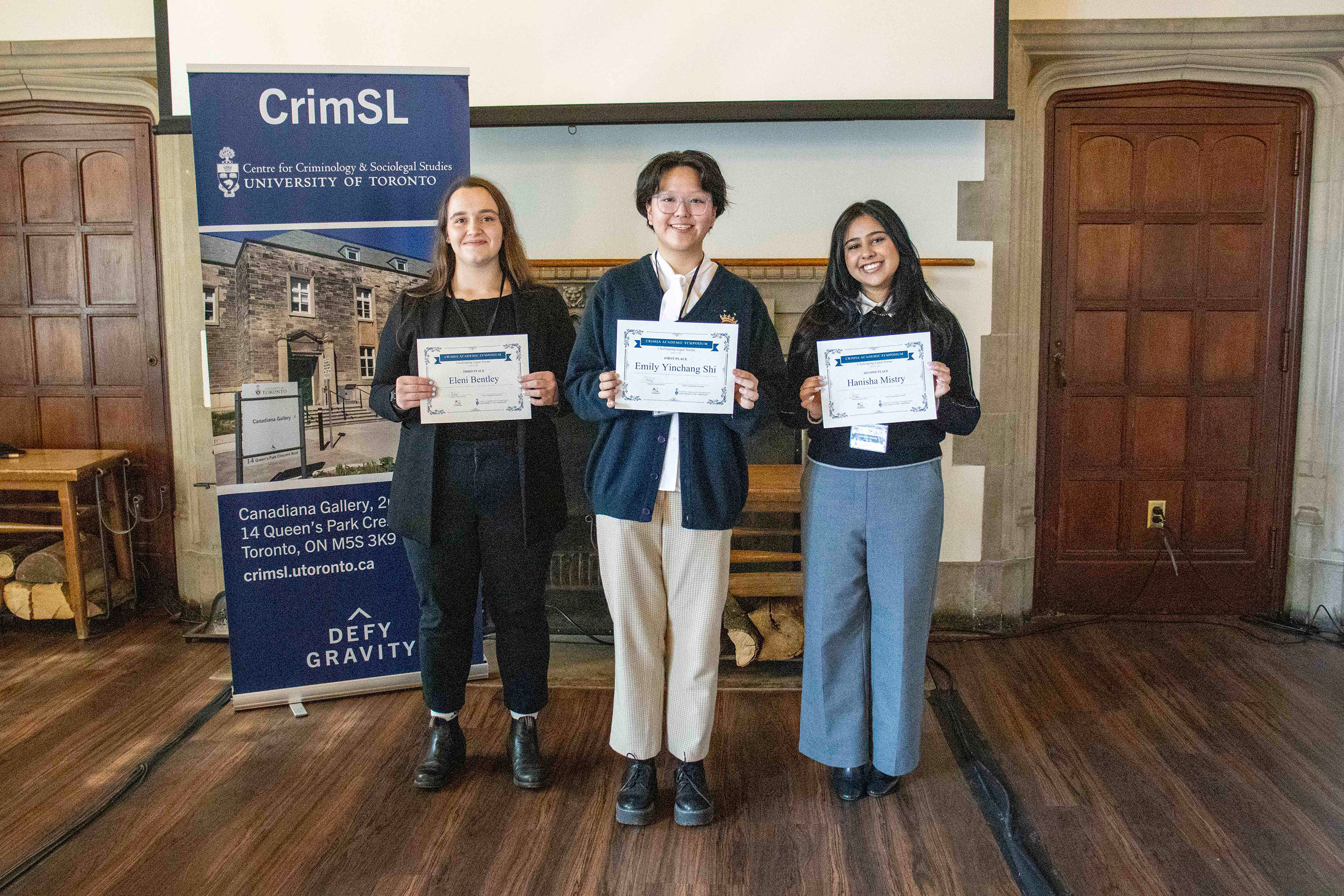
Following the presentations, the judging panel awarded certificates for first, second, and third places. The awards came with monetary prizes of $500, $300, and $100.
- First place went to Emily Yinchang Shi for "Beyond Social Change: Achieving same-sex rights through Judicial Activism in the Caribbean."
- Second place went to Hanisha Mistry for "Legitimizing Discrimination: The Anti-Terrorism Act's Impact on Racialized Communities."
- Third place went to Eleni Bentley for "Sexism in Police Culture, Underreporting, and Attrition of Sexual Assault Cases."
Post-symposium remarks from judge
It was a privilege to serve on the judging panel for this year’s CRIMSA Undergraduate Symposium. The day was a resounding success and highlighted great depths of research and analysis by all of the six students who presented. The decision to award the top three was exceptionally difficult as all of the presentations were not only clear, engaging and academically rigorous but also tackling timely, difficult and complex topics with critical insight. I was particularly impressed by the range of sources used by the presenters, including primary source material from government sources, the courts, and the police. Congratulations to all the presenters on their outstanding work!"
—Danielle Van Wagner, Head Librian, Centre for Criminology and Sociolegal Studies & Centre for Industrial Relations and Human Resources Libraries, University of Toronto
Photo gallery
